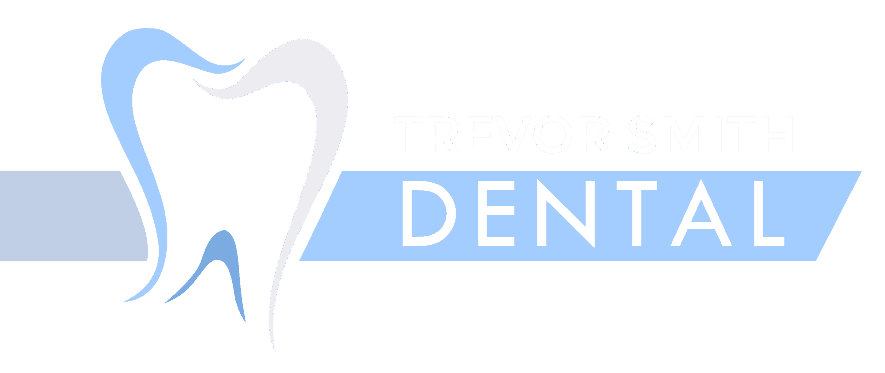Maintaining periodontal health is vital for our overall well-being. Lifestyle factors like smoking, stress, and diet substantially impact our gums. If we develop periodontal disease, treatment options range from non-surgical therapies to surgical procedures, depending on the severity. After treatment, it’s essential to maintain meticulous oral hygiene and attend regular dental check-ups to prevent recurrence. We must take a proactive approach with proper brushing, flossing, and using antiseptic mouthwash to safeguard our gums and teeth. By understanding the importance of periodontal health and implementing preventive measures, we can guarantee a lifetime of healthy smiles. Let’s explore further to learn more.
Understanding Periodontal Disease
Let’s delve into understanding periodontal disease, a serious oral health condition that affects the gums and supporting structures of the teeth.
Periodontal disease begins when the delicate balance of bacteria in our mouths is disrupted, leading to an overgrowth of harmful microorganisms.
This imbalance causes inflammation of the gums, which can progress to damage the connective tissue and bone that anchor our teeth in place.
To grasp the severity of periodontal disease, it’s essential to understand gum anatomy.
Our gums, also known as gingivae, are the soft, pink tissue that surrounds and supports our teeth.
They form a tight seal around each tooth, protecting the underlying bone and preventing bacteria from infiltrating the deeper structures.
When this seal is compromised due to bacterial imbalance, the gums become inflamed and pull away from the teeth, forming pockets that allow bacteria to thrive.
If left untreated, periodontal disease can lead to tooth loss and other systemic health issues.
Regular dental check-ups, proper oral hygiene, and maintaining a healthy bacterial balance in the mouth are crucial for preventing and managing periodontal disease.
Symptoms and Diagnosis
Bleeding gums, especially during brushing or flossing, is one of the most noticeable signs of gum disease.
Red, swollen, or tender gums may also indicate a problem.
As the disease progresses, you might experience persistent bad breath, receding gums, and loose teeth.
These symptoms occur due to the buildup of plaque and bacteria along the gum line, which causes inflammation and infection.
To diagnose periodontal disease, your dentist will perform a thorough oral exam.
They’ll measure the depth of the pockets between your teeth and gums using a small probe.
Pocket depths greater than 3 millimeters may indicate gum disease.
Additionally, your dentist will take x-rays to assess any bone loss around your teeth.
Based on these findings, they’ll determine the severity of your condition and develop a personalized treatment plan.
Early detection is vital for successful treatment, so it’s essential to schedule regular dental check-ups and report any symptoms to your dentist promptly.
With proper care and management, you can restore your periodontal health.
Lifestyle Factors
While early detection and professional treatment are essential for managing periodontal disease, our daily habits and lifestyle choices substantially impact our gum health.
Smoking is a significant risk factor for periodontal disease, as it weakens the immune system and impairs the body’s ability to heal. Quitting smoking is one of the most important steps we can take to improve our periodontal health. Studies have shown that smoking cessation can slow the progression of gum disease and enhance the effectiveness of treatment.
In addition to smoking cessation, stress management plays a vital role in maintaining healthy gums. Chronic stress can compromise our immune system, making us more susceptible to infections, including periodontal disease.
Engaging in stress-reducing activities, such as exercise, meditation, or deep breathing techniques, can help lower cortisol levels and improve our overall well-being. Additionally, maintaining a balanced diet rich in vitamins and minerals, particularly vitamin C and calcium, supports strong teeth and healthy gums.
Regular dental check-ups and proper oral hygiene practices, including brushing twice daily and flossing, are also essential for preventing the accumulation of plaque and bacteria that cause periodontal disease.
Treatment Options
When periodontal disease progresses beyond the early stages, professional treatment becomes necessary to halt its advancement and restore gum health.
Non-surgical therapies, such as scaling and root planing, are often the first line of defense. During these procedures, we remove the plaque and tartar buildup from both above and below the gum line, and smooth out the tooth roots to prevent bacteria from reattaching.
In more advanced cases, surgical procedures may be required.
Surgical options include flap surgery, where we lift back the gums to remove tartar buildup and then suture them back in place. We may also recommend bone and tissue grafts to regenerate lost bone and gum tissue, respectively.
In some instances, we use guided tissue regeneration, which involves placing a special membrane between the bone and gum tissue to encourage the regrowth of lost structures.
The specific treatment plan will depend on the severity of the periodontal disease and the individual patient’s needs. Our goal is to effectively treat the disease, restore periodontal health, and provide you with the knowledge and tools necessary to maintain ideal oral health post-treatment.
Post-Treatment Care
Following periodontal treatment, it’s essential to maintain a meticulous oral hygiene routine and attend regular dental check-ups to prevent the recurrence of the disease.
We must brush our teeth twice daily with a soft-bristled toothbrush and fluoride toothpaste, floss at least once a day, and use an antiseptic mouthwash as directed by our dentist or periodontist. It’s vital to pay special attention to cleaning along the gum line and between the teeth where plaque and bacteria tend to accumulate.
In addition to maintaining excellent oral hygiene at home, we should schedule regular follow-up appointments with our dental professional.
These visits typically occur every three to four months, depending on the severity of our condition and the type of treatment we’ve received. During these appointments, our dentist or periodontist will assess the health of our gums, monitor the healing process, and perform any necessary maintenance procedures, such as cleaning or scaling.
They may also provide guidance on improving our oral hygiene techniques and make recommendations for additional treatments if needed to guarantee the long-term success of our periodontal therapy.
Preventive Measures
Maintaining ideal periodontal health not only involves post-treatment care but also requires a proactive approach to prevent the onset or recurrence of gum disease.
Preventive measures are vital in safeguarding our gums and teeth from the damaging effects of periodontal disease. The cornerstone of prevention is proper oral hygiene, which includes brushing twice a day with a soft-bristled toothbrush and fluoride toothpaste, flossing daily to remove plaque and food particles between teeth, and using an antiseptic mouthwash to reduce bacterial growth.
In addition to meticulous home care, regular checkups with a dental professional are essential for maintaining periodontal health.
These visits typically involve a thorough cleaning to remove tartar buildup, an in-depth examination to detect early signs of gum disease, and personalized advice on improving oral hygiene techniques.
Conclusion
We’ve learned that periodontal health is vital for our overall well-being.
By understanding the symptoms, risk factors, and treatment options, we’re empowered to make informed decisions about our oral health.
Adopting a healthy lifestyle, following post-treatment care instructions, and practicing preventive measures will help us maintain excellent periodontal health.
Let’s work together with our dental professionals to protect our smiles and enjoy the benefits of a healthy mouth for years to come.
Contact Dr. Trevor Smith for your personalized treatment options in Pleasant Grove, Utah.


Recent Comments